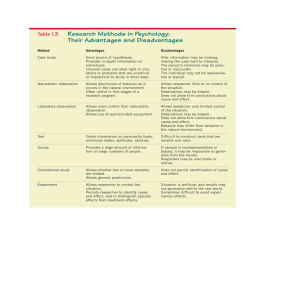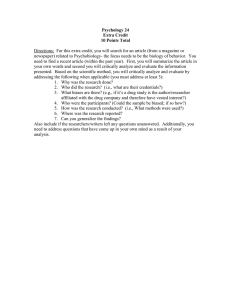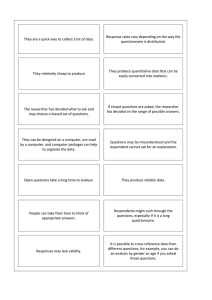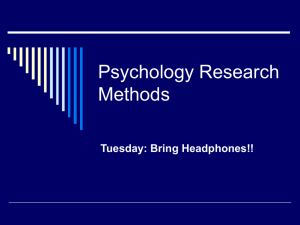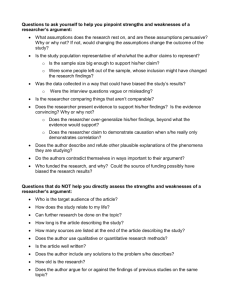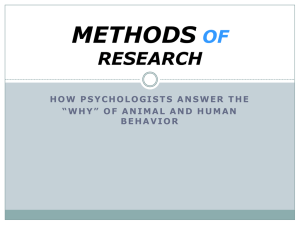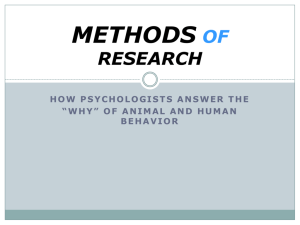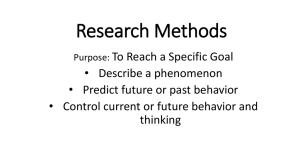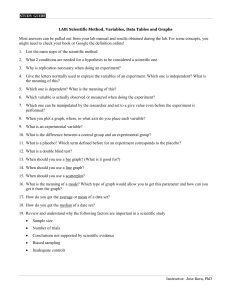Advantages and Disadvantages of Research Methods in Psychology
advertisement
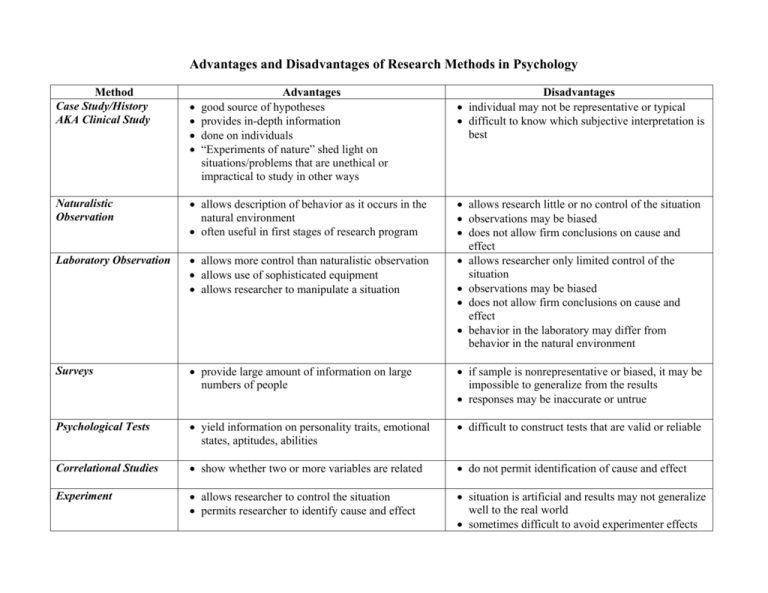
Advantages and Disadvantages of Research Methods in Psychology Method Case Study/History AKA Clinical Study • • • • Advantages good source of hypotheses provides in-depth information done on individuals “Experiments of nature” shed light on situations/problems that are unethical or impractical to study in other ways Disadvantages • individual may not be representative or typical • difficult to know which subjective interpretation is best Naturalistic Observation • allows description of behavior as it occurs in the natural environment • often useful in first stages of research program • allows research little or no control of the situation • observations may be biased • does not allow firm conclusions on cause and effect • allows researcher only limited control of the situation • observations may be biased • does not allow firm conclusions on cause and effect • behavior in the laboratory may differ from behavior in the natural environment Laboratory Observation • allows more control than naturalistic observation • allows use of sophisticated equipment • allows researcher to manipulate a situation Surveys • provide large amount of information on large numbers of people • if sample is nonrepresentative or biased, it may be impossible to generalize from the results • responses may be inaccurate or untrue Psychological Tests • yield information on personality traits, emotional states, aptitudes, abilities • difficult to construct tests that are valid or reliable Correlational Studies • show whether two or more variables are related • do not permit identification of cause and effect Experiment • allows researcher to control the situation • permits researcher to identify cause and effect • situation is artificial and results may not generalize well to the real world • sometimes difficult to avoid experimenter effects
